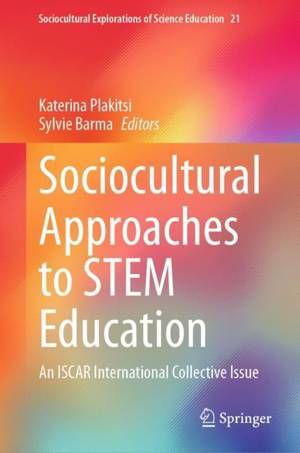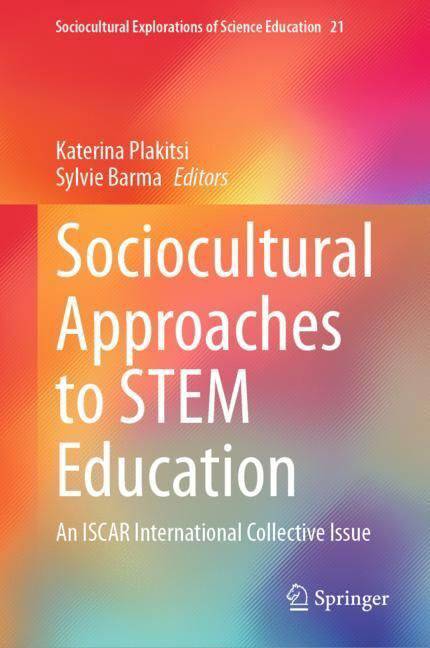
- Retrait gratuit dans votre magasin Club
- 7.000.000 titres dans notre catalogue
- Payer en toute sécurité
- Toujours un magasin près de chez vous
- Retrait gratuit dans votre magasin Club
- 7.000.0000 titres dans notre catalogue
- Payer en toute sécurité
- Toujours un magasin près de chez vous
Sociocultural Approaches to Stem Education
An Iscar International Collective Issue
Description
This book is a contribution to the sociocultural approaches to Science Technology Engineering and Mathematics (STEM) Education. It offers a new interpreting theoretical framework coming from the Cultural Historical Psychology. The authors highlight some serious elements of the sociocultural context that mediates learning on STEM or with STEM adds. The book brings together the work of researchers interested in developmental psychology and childhood, with a special focus on using Activity theory and Cultural-historical research approach to unite these two opposing approaches to the study of children. The authors reconsider our relationship and experiencing with technology. It moves the attention from the pure instrumental aspect of technology to a deep human and societal approach. Moreover, the book focuses on the issue of teachers' continuing education in both formal and informal settings is being seen under a sequential system of expansive cycles and the key role of contradictions in transformative educational settings.
Overall, this book encourages the academic society to open dialogue with other societies and enhance interdisciplinary research in times of crisis.Spécifications
Parties prenantes
- Editeur:
Contenu
- Nombre de pages :
- 296
- Langue:
- Anglais
- Collection :
- Tome:
- n° 21
Caractéristiques
- EAN:
- 9783031443763
- Date de parution :
- 02-01-24
- Format:
- Livre relié
- Format numérique:
- Genaaid
- Dimensions :
- 156 mm x 234 mm
- Poids :
- 621 g

Les avis
Nous publions uniquement les avis qui respectent les conditions requises. Consultez nos conditions pour les avis.





